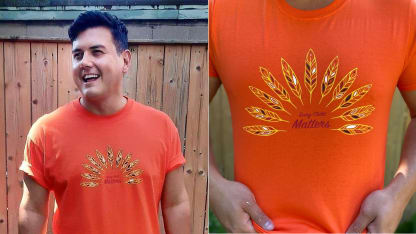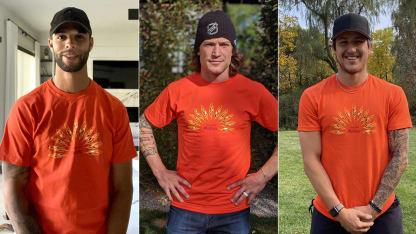"It was a little boy, he was maybe 10 years old, who stopped me and said, 'I recognize that orange shirt and I think it's awesome that you're wearing it,'" said Barrington, chair of the Indigenous Peoples' Network at Rogers Communications. "There wasn't a single adult anywhere that acknowledged or recognized what the symbolism behind it meant. And I thought, 'This is something we can do more with.'"
To help observe Orange Shirt Day on Wednesday, Rogers, the broadcast partner of the NHL, raised nearly $100,000 to bring awareness to the history and harmful impact of the shuttered schools on Canada's Indigenous communities through the sale of an orange shirt that the media company commissioned an Ojibwe artist to design.
"The support we have received from our team members and from customers has been overwhelming, a reflection of the hope for Indigenous communities across Canada," Barrington said. "This campaign was a first for us, and it was amazing to see the team come together with passion and a commitment to helping our communities by leveraging the full power of our assets to increase awareness of support for Orange Shirt Day."







